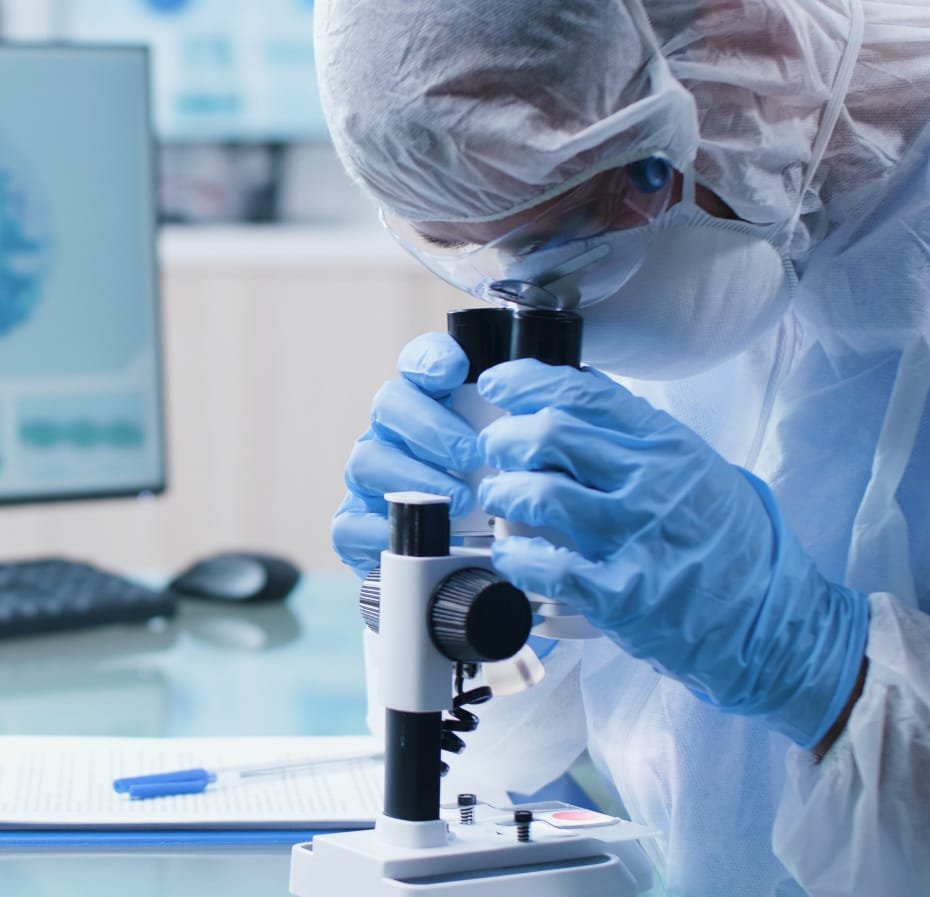HIV Test Singapore
Our clinic offers confidential and accurate HIV testing in Singapore. With rapid results and discreet service, we provide peace of mind and support for those seeking to know their HIV status. Whether you need a routine check or have specific concerns, our experienced medical staff are here to guide you through the process with professionalism and care.
Consult Us Now

What is HIV?
HIV (Human Immunodeficiency Virus) is a virus that weakens the body's immune system by targeting and destroying CD4 (T-cell) lymphocytes, which are a type of white blood cell crucial for protecting against infections from bacteria, viruses, and other harmful pathogens. As these cells are destroyed or weakened, the immune system's ability to defend the body diminishes, increasing the severity of common diseases and conditions, as well as raising the risk of certain cancers.
Over time, if left untreated, HIV can further weaken the immune system, leading to AIDS (Acquired Immunodeficiency Syndrome), the most severe stage of HIV infection. HIV is primarily transmitted through contact with infected body fluids, such as blood, semen, vaginal fluids, and breast milk. While there is no cure for HIV, it can be managed with medication, allowing those infected to live healthy lives.
HIV Symptoms
Early Stage (Acute HIV Infection): In the initial phase, symptoms typically appear 2 to 4 weeks after exposure, often resembling the flu. These can include fever, fatigue, swollen lymph nodes, sore throat, headaches, muscle and joint pain, skin rashes, night sweats, and diarrhea. However, some people may not experience any symptoms during this stage. Although these symptoms may subside after a few weeks, the virus continues to be active in the body.
Middle Stage (Chronic HIV Infection): During this phase, the virus continues to multiply at lower levels. Many people might not show noticeable symptoms, or they may experience only mild signs such as persistent swollen lymph nodes, frequent fevers, ongoing fatigue, unexplained weight loss, mouth sores, and recurrent respiratory infections. This stage can last for several years without treatment.
Late Stage (AIDS - Acquired Immunodeficiency Syndrome): If left untreated, HIV can progress to AIDS, where the immune system is severely compromised. At this stage, the body becomes highly vulnerable to severe infections and certain cancers. Symptoms include rapid weight loss, recurring fever, intense night sweats, extreme fatigue, prolonged swelling of lymph nodes, chronic diarrhea, and sores in the mouth, anus, or genitals. Additionally, serious conditions like pneumonia, skin blotches, and neurological issues such as memory loss may arise.
Early detection and treatment are crucial for managing HIV and preventing its progression to AIDS. Regular testing is essential, particularly for those who may have been exposed to the virus.

Pricing for HIV Testing
This test detects antibodies that the body produces in response to HIV. It is commonly used for diagnosing HIV.
Testing Method: Blood
Result Time: 1 to 3 days
Detects HIV antibodies using a small blood sample
Testing Method: Fingerprick
Result Time: 20 minutes
Detects HIV infection early by identifying both HIV antibodies and p24 antigens
Testing Method: Fingerprick
Result Time: 20 minutes
Detects the genetic material of HIV (RNA or DNA), making it highly sensitive for early detection.
Testing Method: Blood
Result Time: 1 to 2 weeks
Window Period for
HIV Detection and Prevention
- If your last possible HIV exposure was within the last 72 hours, you might need to consider >Post-Exposure Prophylaxis (PEP). PEP is a preventive treatment that can reduce the risk of HIV infection if started promptly.
- If your exposure was within the last 90 days, you may need to repeat the HIV test after the window period to confirm the result.
- Additionally, >Pre-Exposure Prophylaxis (PrEP) is a preventive measure for individuals at high risk of HIV exposure. By taking PrEP daily, you can significantly reduce the risk of contracting HIV.
The window period for HIV is the critical time between exposure to the virus and when it can be detected through HIV testing. This period usually lasts up to 3 months, though it can be longer in some cases, especially if the immune system is weakened. During the window period, the virus or its antibodies may not yet be detectable, which can lead to inconclusive test results if tested too early.
Different HIV tests have varying window periods, so it's important to consult with your healthcare provider to understand the specific timeline for the test you are taking. For instance:
Prevention is a key aspect of managing HIV risk. Alongside PEP and PrEP, using condoms consistently and correctly during sexual activity, avoiding sharing needles, and getting regular HIV testing are all effective strategies for reducing the risk of HIV infection.
If you test negative after the window period and have had no possible exposure during that time, you can be confident that you do not have HIV. However, ongoing prevention strategies remain essential to maintaining your HIV-negative status.
How May I Proceed?
If you're unsure which type of HIV testing is suitable for you or need further clarification, feel free to reach out to us via WhatsApp at >8185 5577. We're here to answer your questions and guide you in selecting the most appropriate HIV testing option for your needs.
Directions
Opp Clarke Quay Station (B04239)
Bus No: 2, 12, 33, 54, 147, 190, 12E, TS3, 147A
Clarke Quay Station Exit E (B04222)
Bus No: NS1, NS2, 2, 2A, 12, 12E, 33, 51, 54, 61, 63, 80, 124, 145, 147, 166, 174, 174E, 190, 197, 851, 851E, 961, 961M
Opp High Street Centre (B04251)
Bus No: 32, 195, 195A
Boat Quay (B05029)
Bus No: NS1, NS2, 51, 61, 63, 63A, 80, 124, 145, 166, 174, 174E, 197, 851, 851E, 961, 961M
Clarke Quay Station (NE5)
Exit E
The Riverwalk Carpark
Mon-Fri Before 5/6pm: $2.00 for 1st hr, $1.00 for next subsequent 30min from 7am to 5pm
Mon-Fri after 5/6pm: $3.21/entry from 5pm to 7am the following day
Sat: $2.00 for 1st hr, $1.00 for next subsequent 30min from 7am to 5pm, $3.21/entry from 5pm to 7am the following day
Sun/PH: $3.21/entry from 7am to 7am the following day
HIV Disclosure in Singapore
- To Sexual Partners: If someone with HIV has a detectable viral load, they are required by law to inform their sexual partners before engaging in any sexual activity. This is because there is a risk of transmitting the virus when the viral load is detectable. However, if the viral load is undetectable (consistently low for at least six months), they are not required to inform their sexual partners, as the risk of transmission is extremely low.
- To Medical Personnel and Dentists: Individuals with HIV must inform healthcare providers, including doctors and dentists, about their status before any invasive procedures. This ensures the safety of both the patient and the healthcare professionals.
- Encouraging Screening: While it’s not legally required, people with HIV are encouraged to advise their sexual partners or anyone else at risk to get tested. This helps in early detection and effective management of the virus.
Privacy Protection
- No Obligation to Disclose to Others: People with HIV are not legally required to inform their employers, relatives, or anyone else outside of medical or sexual contexts. Singapore law protects their identity, and unauthorized disclosure of their HIV status is illegal, with penalties including fines or imprisonment.

Common FAQ on HIV
How is HIV transmitted?
HIV is primarily transmitted through contact with certain body fluids from an infected person, including blood, semen, vaginal fluids, rectal fluids, and breast milk. The most common ways of transmission include unprotected sexual contact, sharing needles, and from mother to child during childbirth or breastfeeding.
How can HIV be prevented?
HIV can be prevented through the consistent use of condoms during sexual activity, taking >Pre-Exposure Prophylaxis (PrEP) if at high risk, using >Post-Exposure Prophylaxis (PEP) after potential exposure, and avoiding the sharing of needles.
What should I do if I think I've been exposed to HIV?
If you believe you’ve been exposed to HIV, seek medical advice immediately. >Post-Exposure Prophylaxis (PEP) can be taken within 72 hours of exposure to reduce the risk of infection. Early testing and follow-up tests are also recommended.
What should I do if I test positive for HIV?
If you test positive for HIV, it’s important to seek medical care immediately to start antiretroviral therapy (ART). Early treatment helps control the virus, protects your immune system, and reduces the risk of transmitting HIV to others. You should also receive counseling and support to help manage your mental and emotional health.
Is there a cure for HIV?
Currently, there is no cure for HIV, but it can be effectively managed with Antiretroviral Therapy (ART). ART reduces the viral load to undetectable levels, allowing individuals to live long, healthy lives and preventing the transmission of HIV to others.
Can I live a normal life with HIV?
Yes, with proper treatment and care, individuals with HIV can live long, healthy lives. Antiretroviral therapy (ART) helps manage the virus effectively, reducing the viral load to undetectable levels, which prevents the progression to AIDS and significantly reduces the risk of transmission.
What is the difference between HIV and AIDS?
HIV is the virus that causes AIDS. AIDS is the final stage of HIV infection, characterized by a severely weakened immune system that cannot effectively fight off infections and diseases. Not everyone with HIV will develop AIDS, especially if they are on effective treatment.
